In recent years, the use of AI for software development has become increasingly common, especially among teams seeking greater agility, precision, and innovation. With advanced algorithms, artificial intelligence can identify problems in the code and suggest corrections automatically.
In this content, we have gathered the 10 best AI tools that are revolutionizing software development and can help you optimize each stage of the development cycle.
Best AI options for software development
Below, you will find a complete list of the best solutions on the market:
1. Lovable
To start our list, let’s talk about Lovable, an AI platform for software development that allows you to create complete websites and applications from prompts in English or Portuguese.
Just describe what you want to develop, and the tool automatically starts the project. You can edit the application elements, upload files within the software itself, and integrate the platform with your GitHub account.
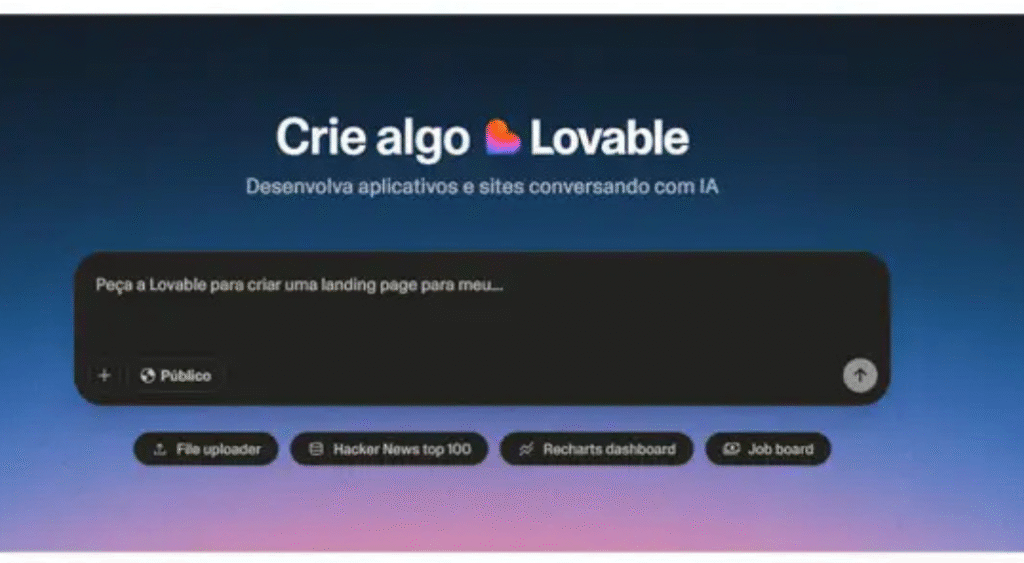
One of Lovable’s standout features is the automated generation of README files using artificial intelligence, an ideal resource for presenting organized, clear, and more professional projects on GitHub.
2. ChatGPT
Next, we have ChatGPT, one of the most widely used and versatile artificial intelligence tools available today. It can be used to generate code snippets in various languages, explain errors, optimize algorithms, and suggest good programming practices.

With support for natural language prompts, ChatGPT is an excellent AI option for software development. When used strategically, it acts as a true assistant, capable of accelerating the development cycle with efficiency and practicality.
3. Gemini
Developed by Google, Gemini is a powerful AI tool for programming, ideal for assisting developers in creating and maintaining code, solving logical problems, and documenting projects of different scopes.
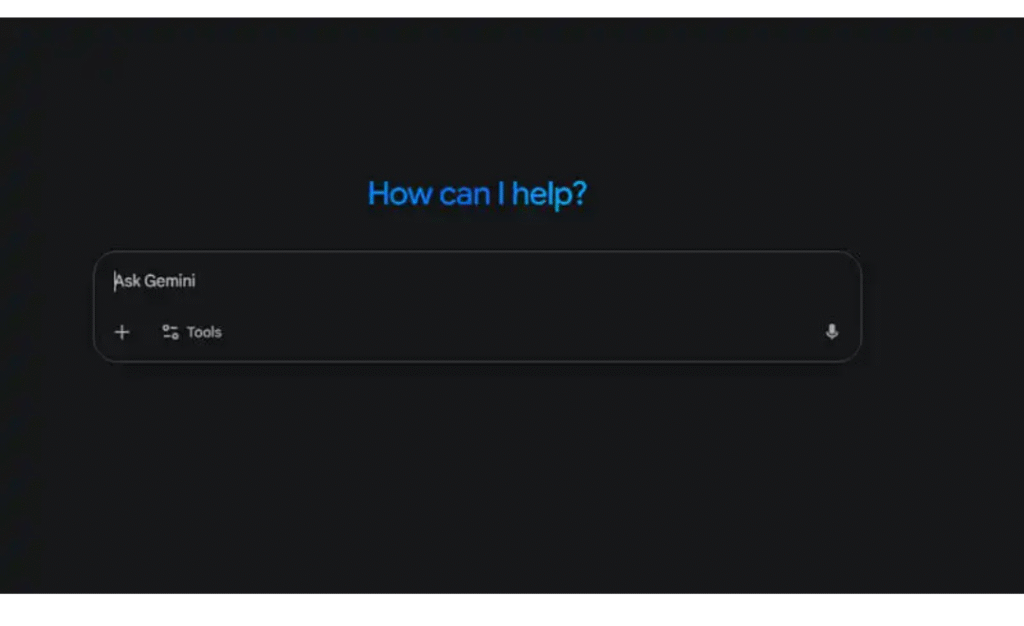
The major difference between Gemini and other solutions on the market lies in its integration with the Google ecosystem and its ability to interpret images, documents, and complex codes with a high level of accuracy.
4. GitHub Copilot
Now, let’s move on to GitHub Copilot, one of the most advanced tools for those looking for AI for software development. Integrated with environments such as VS Code, Visual Studio, JetBrains, and others, it works as a coding assistant, suggesting code snippets, explaining errors, and speeding up writing in real time.
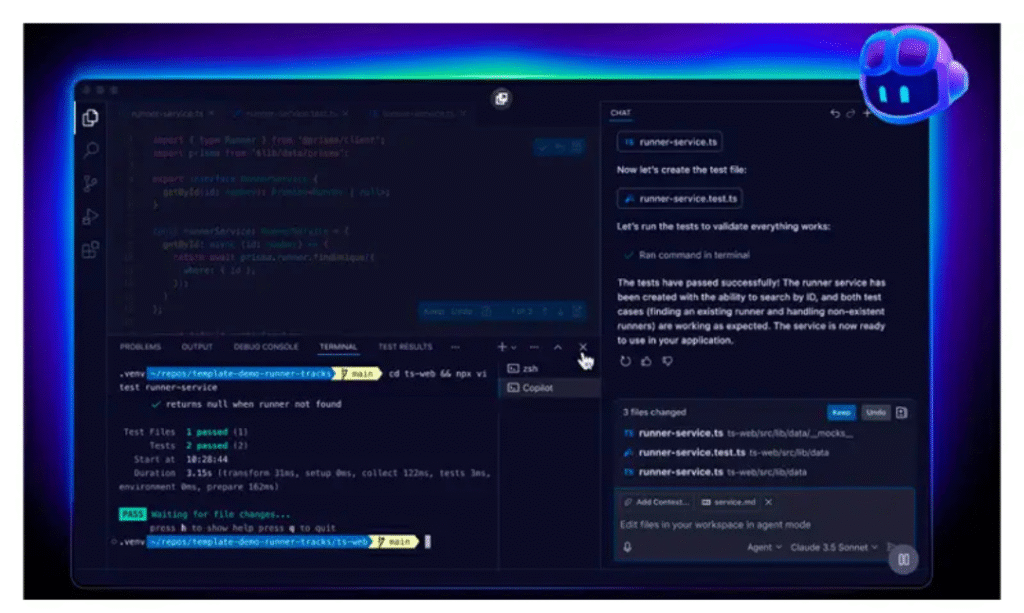
With the new Agent mode, Copilot goes beyond automatic suggestions: it can plan, write, test, and even create complete pull requests. The tool also offers AI code review, integration with GitHub Actions, and support for multiple cutting-edge AI models, such as GPT-4.1, Claude, and Gemini.
5. Tabine
Continuing our list, we have Tabine, which uses AI trained on billions of lines of code to make contextual code suggestions based on patterns identified in your project, covering everything from creation to documentation, testing, and code review.
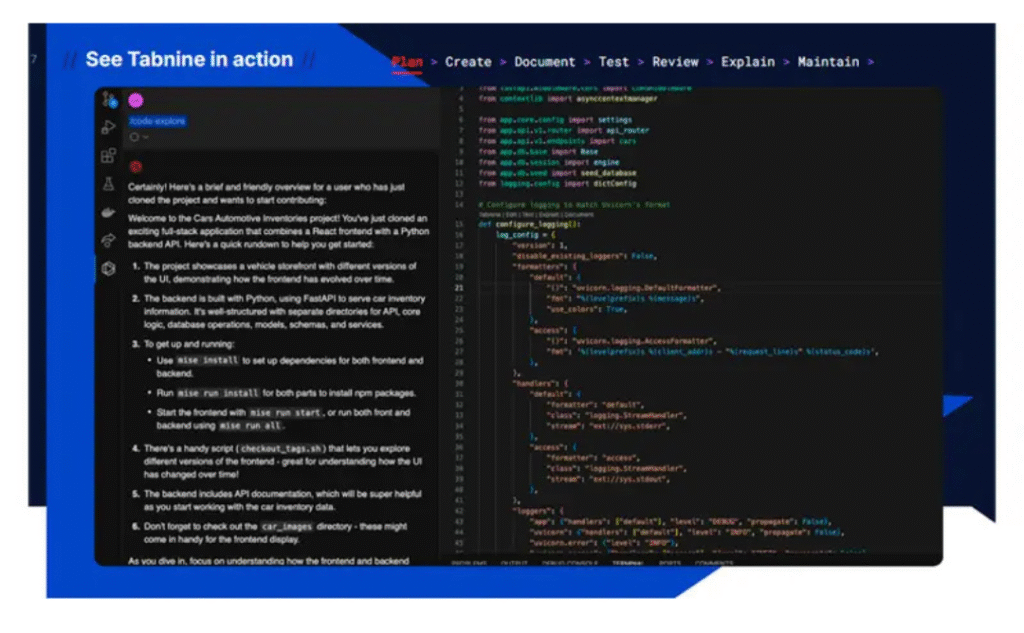
One of Tabnine’s major attractions is that proprietary models are never trained using your code, and the tool can be deployed in isolated environments (on-premises, VPC, or secure SaaS).
Recognized by companies and analysts as a reliable solution, Tabnine was featured in the Gartner® Critical Capabilities for AI Code Assistants report, leading in use cases such as code generation, debugging, and explanation.
6. Amazon Q Developer
Amazon Q Developer, an evolution of CodeWhisperer, is a generative AI assistant integrated into the AWS ecosystem. Its goal is to help developers accelerate tasks throughout the software lifecycle, from implementing features to generating documentation, testing, analysis, refactoring, and code updates.
According to official data from the AWS website, the tool can make initial development up to 25% faster, increase productivity by up to 40%, and has an acceptance rate of 37%, one of the highest among solutions in its category.
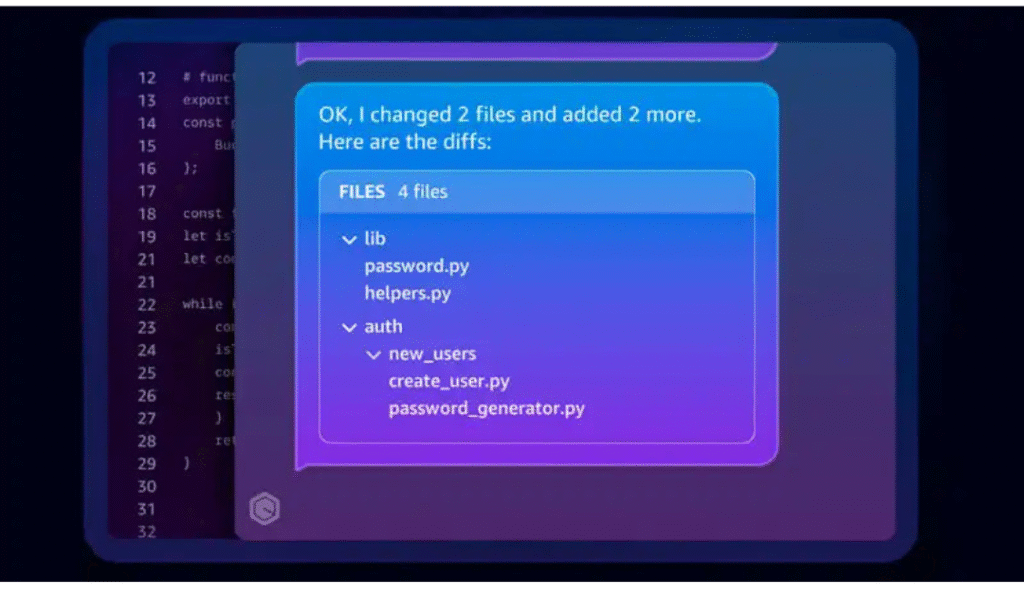
In addition, it offers a high level of customization, access control, and privacy, with features specifically designed for corporate environments and cloud applications.
7. OpenAI Codex
Another excellent AI alternative for software development is OpenAI Codex, an advanced solution capable of accelerating software engineering tasks through specialized agents.
It works like a real assistant engineer, capable of writing lines of code, answering technical questions, performing multiple tasks in parallel, running tests, and proposing pull requests for review, all while integrating directly with the project repository.
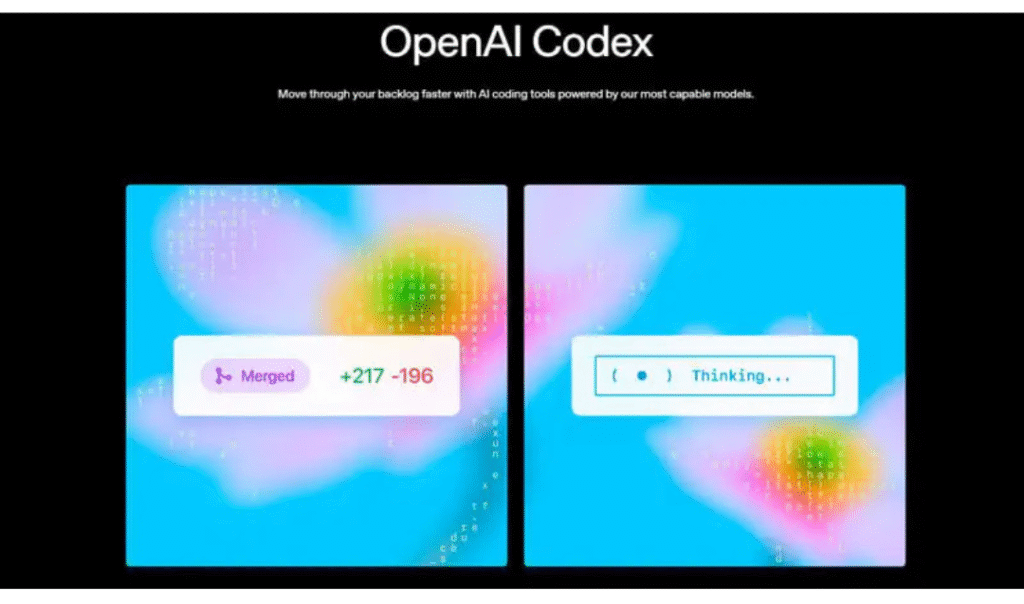
For teams that prefer to work locally, there is Codex CLI, a lightweight code agent that runs in the terminal and helps you write, edit, and understand code efficiently.
8. Cody — Sourcegraph
Similar to other tools presented earlier, Cody is a coding assistant that understands the entire context of a repository and offers suggestions based on the actual code in your repository.
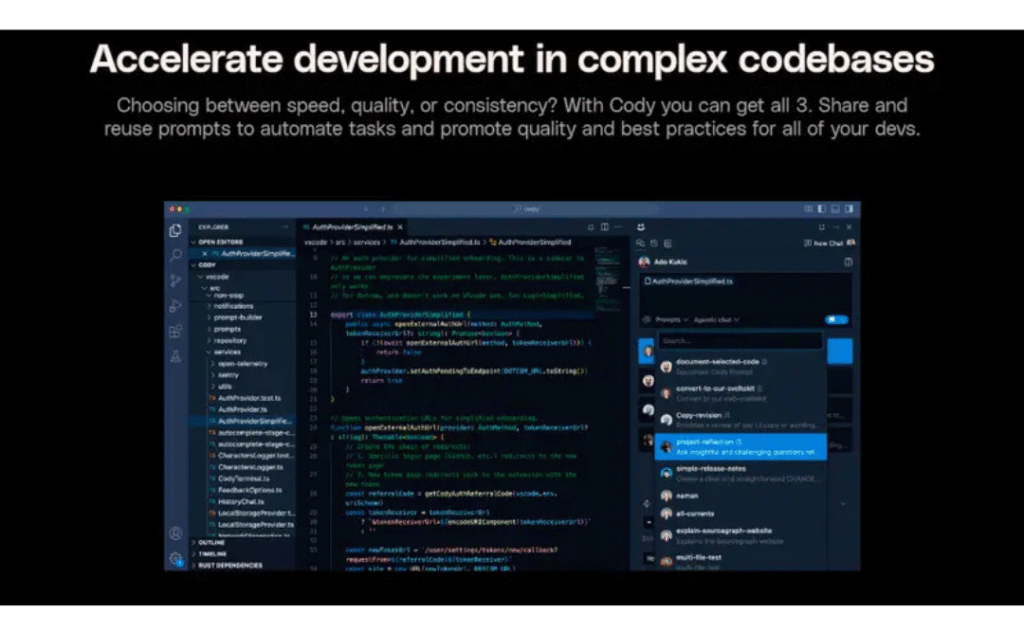
With support for various IDEs (VS Code, IntelliJ, PyCharm, WebStorm, among others), Cody adapts to your team’s workflow seamlessly. In addition, it allows you to choose from the best LLMs available, such as Claude 3.7 Sonnet, Claude 3.5 Haiku, GPT-4.1, and Gemini 2.5 Pro.
9. Codiga
Designed to improve code quality, Codiga is a static analysis tool that works directly in your IDE or CI/CD pipeline, identifying and correcting potential vulnerabilities, security issues, and best practice violations in real time.
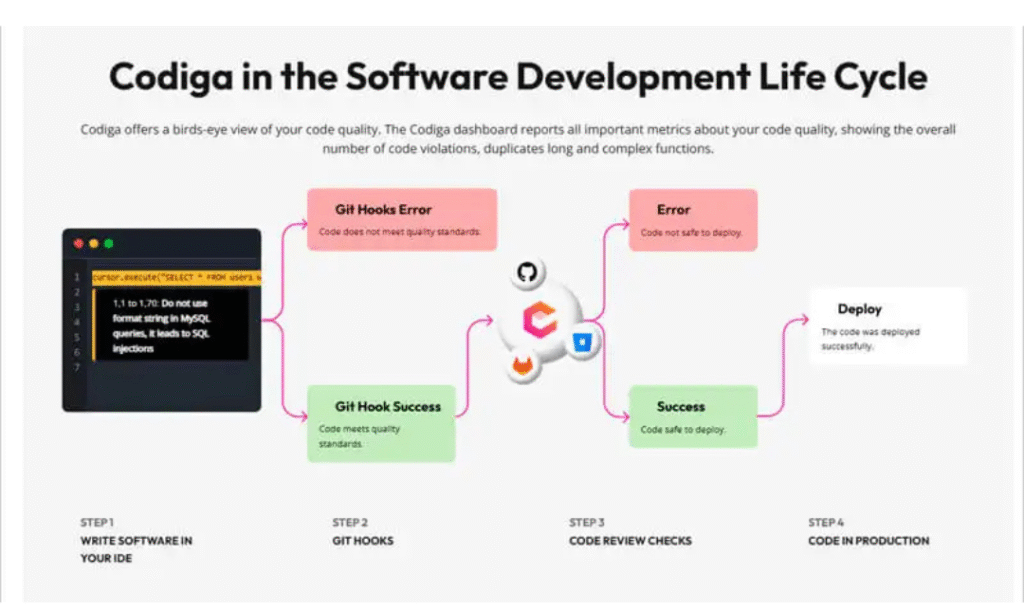
With it, you can create custom analysis rules in minutes and use hundreds of rules available on the Codiga Hub. Finally, the platform supports languages such as C++, PHP, Java, JavaScript, and more.
10. Qodo
Finally, we have Qodo, an AI platform for programming capable of offering real-time improvement suggestions and automating development tasks such as test generation and pull request review.
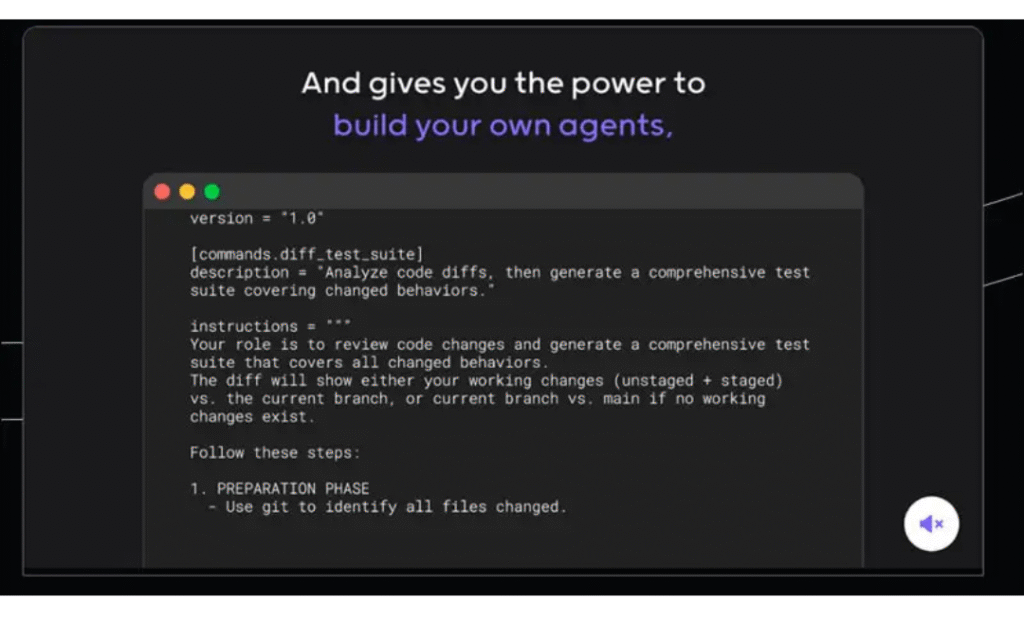
The platform’s AI agents understand your company’s standards and practices, ensuring that suggestions are aligned with the objectives and requirements of each project. The tool also gives you access to features such as chat-guided testing, code coverage analysis, and automated documentation.
Have you found the best AI for software development?
We hope that this content has helped you discover useful tools that will truly help you enhance and streamline your work as a developer. When used strategically, artificial intelligence can become a great ally when writing, reviewing, testing, and documenting code.

